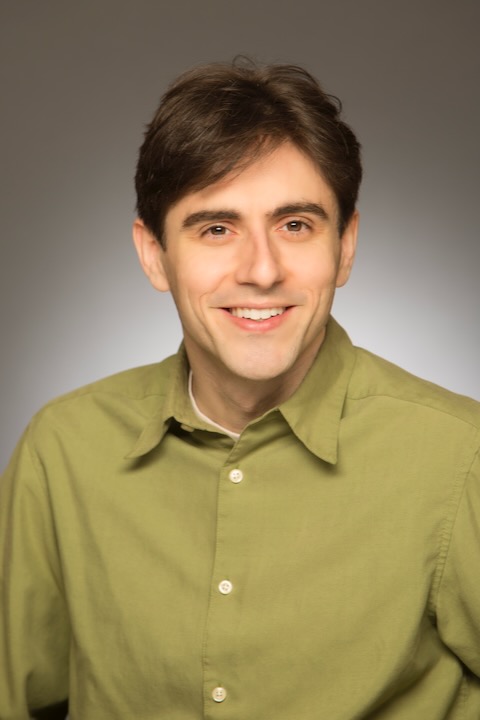Theoretical Chemist Joseph Subotnik to join Princeton Chemistry
The Department of Chemistry is pleased to welcome Joseph Subotnik as professor of chemistry, effective July 1, 2024.
Subotnik, a theoretical chemist whose research looks at how electrons and nuclei exchange energy, is currently a chemistry professor at the University of Pennsylvania. There, he holds the Edmund J. and Louise W. Kahn Endowed Term Chair. At Princeton, he will join the Theoretical and Spectroscopy/Physical Chemistry subfields.

Joseph Subotnik, Princeton Chemistry’s newest professor of chemistry.
“I’m just very excited,” said Subotnik. “Princeton chemistry faculty are intensely focused on the problem of converting energy from one form to another. To me, that’s probably the most exciting problem there is.
“At Princeton, on the one hand, you have outstanding theoretical chemists who think deeply about the nature of large assemblies of molecules and atoms, and about how electrons exchange energy with each other over long time scales and spatial scales.
“On the other hand, you also have terrific experimental chemists who are experts at using light not just to probe chemical reactions but also to produce entirely new chemical reaction pathways. Joining Princeton represents a wonderful opportunity for me to broaden my research scope and maximize my impact on the field.”
Subotnik trails an impressive list of honors and awards, including Sloan, Packard, and Guggenheim fellowships. He was sanguine about these achievements, however, saying: “Getting a prize is not as meaningful as doing something that will stand the test of time.”
Paul Chirik, Department Chair and the Edwards S. Sanford Professor of Chemistry, said: “We are thrilled to have Professor Joe Subotnik join our faculty. He is a world-recognized leader in quantum chemistry and his work in merging electronic structure theory and nonadiabatic dynamics will add even more strength to our department.
“We look forward to welcoming Joe as a researcher, teacher, and collaborator with various experimental groups around the Princeton campus.”
Subotnik is the eighth chemistry faculty member hired by the Department in the past year, including Todd Hyster, Erin Stache, Jose Roque, Alice Kunin, Sharon Hammes-Schiffer, Christopher Chang, and Michelle Chang.
Subotnik investigates electronic behavior in the condensed phase to develop simple theoretical tools and then run large-scale simulations that describe complex molecular environments and phenomena. His lab seeks to quantify electron transfer, energy transfer, and electronic relaxation—old problems in physical chemistry that have been revived in recent years.
“I want to understand how electrons and nuclei and spins exchange energy, and what can be done with that exchange,” he said. “I want to understand how energy imparted by light can be lost—that’s the energy relaxation part—and how you can funnel that energy into new directions and targets.
“As a field, we’re still looking for the essential equations that describe the dynamics of molecular and material systems most inexpensively,” he added. “Students and postdocs in my group are interested in building new quantitative tools that can reduce the exponential cost of quantum dynamics into something more tractable that can be run on modern computers.
Subotnik is a professed fan of the dictum “Think deeply about simple things,” which he first learned during a summer mathematical program when he was in high school.
“I just love the experience of trying to think things through until you make them as simple as possible. Somehow you chew on it and chew on it until you realize that this thing that looked very complicated and that scares everybody can actually in the end be very simple,” he said. “And that has to guide your teaching, as well. Break things into simple concepts. It goes far.”
Subotnik earned his B.A. summa cum laude in physics and math from Harvard University in 2000, and his Ph.D. in biophysics at the University of California, Berkeley under Martin Head-Gordon, defending in 2006. He was an NSF International Postdoctoral Fellow at Tel-Aviv University under Abraham Nitzan from 2007 to 2009, and then a postdoctoral research fellow at Northwestern University under Mark Ratner from 2009 to 2010.
He began his independent career as an assistant professor of chemistry at Penn in July of 2010, and was tenured in July 2014.
Subotnik’s awards include a Guggenheim Fellowship in 2016 for his work in nuclear-electronic processes; a Dreyfus Teacher Scholar Award in 2015; a Packard Fellowship in 2012; an NSF CAREER Award in 2012; a Presidential Early Career Award for Science and Engineering (PECASE) in 2012; and an Alfred P. Sloan Fellowship in 2012, among others.
For the moment, Subotnik plans to commute to Princeton’s campus from Philadelphia where he currently lives with his family. An enthusiastic cyclist–Subotnik once biked from San Francisco to Los Angeles–he is keen to try biking the slightly shorter distance from Princeton Junction to Frick Laboratory.
“I heard they might have a bike path from the train station to campus at some point,” he said. “Wouldn’t that be a great way to get to work?”
